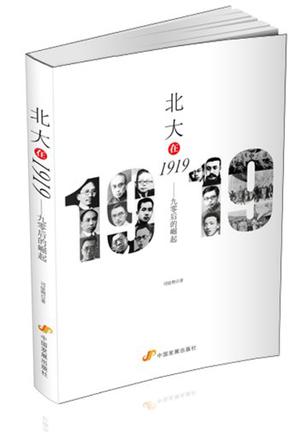欢迎来到相识电子书!
标签:1919
-
Paris 1919
From Publishers Weekly A joke circulating in Paris early in 1919 held that the peacemaking Council of Four, representing Britain, France, the U.S. and Italy, was busy preparing a "just and lasting war." Six months of parleying concluded on June 28 with Germany's coerced agreement to a treaty no Allied statesman had fully read, according to MacMillan, a history professor at the University of Toronto, in this vivid account. Although President Wilson had insisted on a League of Nations, even his own Senate would vote the league down and refuse the treaty. As a rush to make expedient settlements replaced initial negotiating inertia, appeals by many nationalities for Wilsonian self-determination would be overwhelmed by rhetoric justifying national avarice. The Italians, who hadn't won a battle, and the French, who'd been saved from catastrophe, were the greediest, says MacMillan; the Japanese plucked Pacific islands that had been German and a colony in China known for German beer. The austere and unlikable Wilson got nothing; returning home, he suffered a debilitating stroke. The council's other members horse-traded for spoils, as did Greece, Poland and the new Yugoslavia. There was, Wilson declared, "disgust with the old order of things," but in most decisions the old order in fact prevailed, and corrosive problems, like Bolshevism, were shelved. Hitler would blame Versailles for more ills than it created, but the signatories often could not enforce their writ. MacMillan's lucid prose brings her participants to colorful and quotable life, and the grand sweep of her narrative encompasses all the continents the peacemakers vainly carved up. 16 pages of photos, maps. Copyright 2002 Cahners Business Information, Inc. --This text refers to an out of print or unavailable edition of this title. From Library Journal In an ambitious narrative, MacMillan (history, University of Toronto) seeks to recover the original intent, constraints, and goals of the diplomats who sat down to hammer out a peace treaty in the aftermath of the Great War. In particular, she focuses on the "Big Three" Wilson (United States), Lloyd George (Great Britain), and Clemenceau (France) who dominated the critical first six months of the Paris Peace Conference. Viewing events through such a narrow lens can reduce diplomacy to the parochial concerns of individuals. But instead of falling into this trap, MacMillan uses the Big Three as a starting point for analyzing the agendas of the multitude of individuals who came to Versailles to achieve their largely nationalist aspirations. Following her analysis of the forces at work in Europe, MacMillan takes the reader on a tour de force of the postwar battlefields of Asia and the Middle East. Of particular interest is her sympathy for those who tried to make the postwar world more peaceful. Although their lofty ambitions fell prey to the passions of nationalism, this should not detract from their efforts. This book will help rehabilitate the peacemakers of 1919 and is recommended for all libraries. Frederic Krome, Jacob Rader Marcus Ctr. of the American Jewish Archives, Cincinnati Copyright 2002 Cahners Business Information, Inc. --This text refers to an out of print or unavailable edition of this title. -
北大在1919
《北大在1919:九零后的崛起》是一本写给当下的历史书,非学术,非演义,而是新闻笔法的记录。而您会发现,我们真的是和1919年处在现代化的同一时期。比如他们会为何时获得诺贝尔奖而焦虑,会为权贵的骄横而愤怒,会为民众的互伤而懊恼,会为出国还是留下而苦恼,会为考“公务员热”而叹息,等等。一句话,我们一同走在唐德刚先生所言的“历史三峡”之中。如何冲将出去,是我们共同的使命,但不该是旋涡中打转的宿命。 《北大在1919:九零后的崛起》由司徒朔编著。
热门标签
下载排行榜
- 1 梦的解析:最佳译本
- 2 李鸿章全传
- 3 淡定的智慧
- 4 心理操控术
- 5 哈佛口才课
- 6 俗世奇人
- 7 日瓦戈医生
- 8 笑死你的逻辑学
- 9 历史老师没教过的历史
- 10 1分钟和陌生人成为朋友


